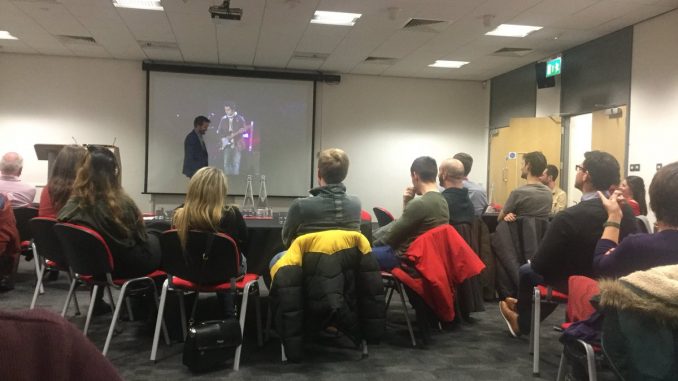
By Ethan Harris
NEW research into cravings and addictions in rock climbers has identified conceptual similarities between extreme sports athletes and those with drug and behavioural addictions.
Whilst still in its early stages, the research hopes to offer potential replacement therapy for substance users through extreme sports such as climbing.
The findings of the study have suggested that rock climbers experience craving and other withdrawal-like states when removed from their sport.
Ready for the inaugural professorial lecture at @UniSouthWales from Prof. David Shearer. pic.twitter.com/jiRk5bNeZI
— Alecia Cousins (@Alecia809) November 27, 2018
Speaking at his inaugural lecture, an author of the paper, Professor David Shearer, was positive on the potential extreme sports could provide.
“Extreme sports could be a potential replacement for substance mis-users,” he said.
“It would be replacing one addiction that is socially unacceptable with one that is.
“Hopefully we can find some form of intervention and help people with substance misuse with this kind of activity.”
Using a questionnaire to ask rock climbers about their cravings and urges for participation, the study looked at a wide range of experienced mountaineers to determine their findings.
Whilst the paper acknowledged any understanding between addiction and craving in an extreme sports environment remains in its infancy, it is hoped the research can develop a greater understanding of the subject matter.
Plans for any form of replacement therapy remain tentative, but further research and understanding could go a long way in helping those that suffer from substance mis-use in the future.
Professor Shearer collaborated with Dr. Gareth Roderique-Davies, Robert Heirene and Professor Stephen Mellalieu on the research, utilising climbers from 20 different countries across five continents.
A very inspiring evening @davshearer inaugural professorial lecture tonight. Great insight into some of his research exploits that have had huge impact in their respective areas. Left me questioning my own future research endeavours… #CroesoButties #AmIAnAddict pic.twitter.com/oCz5dFldeZ
— Lee Baldock (@Bully__22) November 27, 2018
Being an avid climber himself, Professor Shearer left some words of wisdom for those who attended his lecture.
“Don’t stop asking ‘But why?’” he told them.
And he challenged the academics in attendance: “If you can’t make an impact on society, what are you doing research for?”
